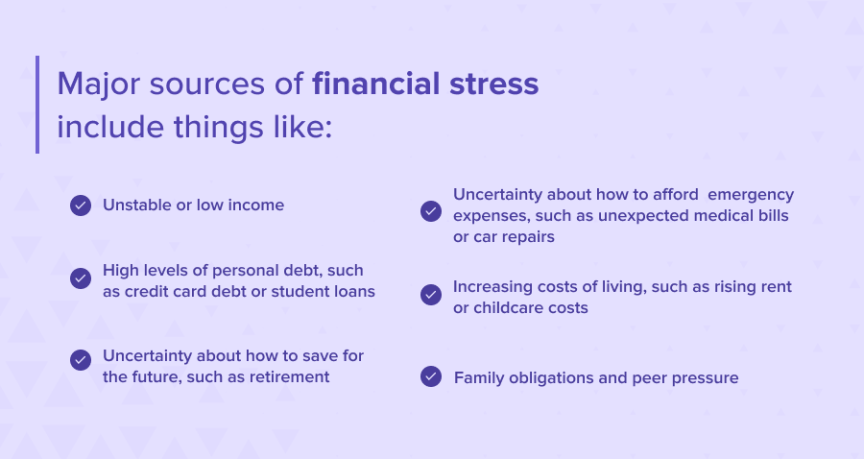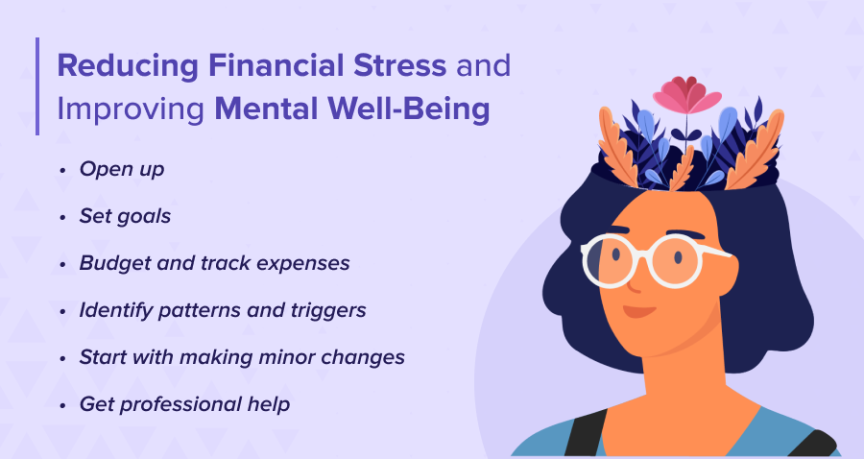Learn why leading HR professionals trust ekincare! Explore Now

Money is one of the biggest sources of stress in people's lives. Whether we're struggling to make ends meet, paying off a family debt, or simply trying to save a little extra money each month, financial concerns can take a serious toll on our mental well-being.
"Financial Wellness" is the term used to describe the state of mind where a person feels in control of their finances and their money-related decisions.
Mental health experts have long recognised a link between financial wellness and mental well-being. When people feel stressed about money, it can lead to anxiety, depression, and other mental health issues. In this article, we'll explore the impact of financial wellness on mental well-being and offer some tips for reducing financial stress.
One of the most dangerous aspects of financial stress is that it can lead to a vicious cycle of money and mental health problems.
For example, excessive stress can reduce our ability to concentrate and decide, which can lead to poor money choices. This might include overspending on things we don't need or struggling to save money because we're too distracted by our financial worries. As a result, we might fall deeper into debt and experience even more stress, creating a vicious cycle that can be difficult to break.
Major sources of financial stress include things like:

The impact of financial stress on mental well-being is significant. Excessive financial stress can lead to anxiety, depression, and even suicide. Financial stress can also cause physical health problems, such as heart disease and obesity.
So, it is important to understand how to reduce financial stress and improve your overall financial wellness.
One of the first steps to improving mental well-being is talking about our personal finances, whether that's with a trusted friend, family member, or therapist. Sharing your financial concerns with others can help you feel less alone and more in control of the situation, both of which can reduce stress and improve mental well-being.
Setting financial and lifestyle goals can help you stay focused on your long-term plans, rather than getting distracted with the day-to-day worries about money.
These goals could include saving for a house, paying off student loans, or even just setting a goal to spend less money on takeout lunches and coffees. By focusing on these goals, you can take control of your budget and reduce unnecessary stress.
Get a clear picture of where your money is going each month. This should include casual expenses that often go unnoticed, like cab fares. Awareness is the first step to bringing about any change.
You can use online budgeting tools to track your expenses, or simply keep a careful record in a notebook. Regardless of the method you choose, keeping track of your spending will bring to light the areas that need changes.
Besides tracking your spending, it is important to look for patterns and triggers that might cause your financial stress.
For example, are there certain times of the month or year when you felt more anxious about money? Are there specific shopping habits that cause you to overspend or rack up debt? By identifying these patterns, you can develop strategies to address them and improve your financial well-being.
Once you've identified your patterns and triggers, start by making minor changes that can have a big impact.
For example, if you find out that you overspend while shopping online, consider deleting online shopping apps, creating a temporary spending freeze on your credit cards, or setting a strict budget for your online shopping. These minor changes will lead to better financial management over time.
Recent years have seen an increase in suicide rates among young adults, particularly those in white-collar jobs. If you're struggling with excessive financial stress and its impact on your mental well-being, it's important to seek professional help.
Therapists or financial advisors can provide expert guidance and support, to help you manage your finances and improve your mental well-being. By working together, you can take control of your budget and reduce unnecessary financial stress in the long term.

Nivetha Kannan writes blogs on mental health and well-being topics for Silver Oak Health. She is a professional content writer and is passionate about the field of psychology & personal development. She writes impactful content that brings positive changes in people. Her mantra for life is to "be curious and not judgemental".
Schedule a demo to learn how your organisation can get the best employee health and well-being experience with ekincare's commitment to quality.